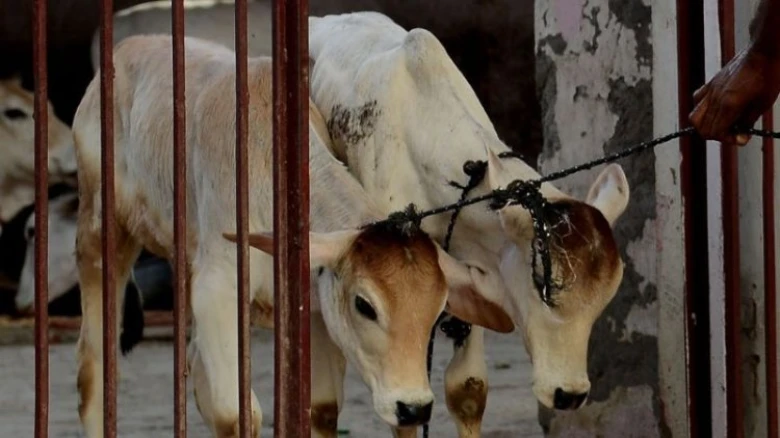According to Jatindra Nath Swain, Secretary of the Animal Husbandry and Dairy Department, states are now employing the "goat pox" vaccine to treat lumpy skin disease (LSD) in cattle.
Digital Desk: The Center reported on Monday that more than 67,000 cattle have died since the lumpy skin disease outbreak in July, sparking a huge vaccination campaign for cattle in more than eight states where the disease is most prevalent.
According to Jatindra Nath Swain, Secretary of the Animal Husbandry and Dairy Department, states are now employing the "goat pox" vaccine to treat lumpy skin disease (LSD) in cattle.
It would take the next "three to four months" for the new LSD vaccine, Lumpi-ProVacInd, which was created by two institutions of the agro-research body ICAR, to get on sale.
It is to be noted that Gujarat, Rajasthan, Punjab, Haryana, Uttar Pradesh, Uttarakhand, Madhya Pradesh, and Jammu & Kashmir are the primary states where the lumpy skin disease has spread. Andhra Pradesh and the Andaman and Nicobar Islands both have a few stray cases.
"In Rajasthan, there are 600-700 deaths every day, whereas there are less than 100 in other states," he added, noting that the ministry has requested that states speed up the vaccination procedure.
The goat pox vaccine is "100% effective," claims Swain, and 1.5 crore doses have already been given in the affected areas.
Additionally, he claimed that the nation has an adequate supply of goat pox vaccinations.
This vaccine is manufactured by two companies, and they have the capability to produce 4 billion doses each month.
There are over 20 million cows worldwide. He said that 1.5 crore goat pox pills have already been administered.
In places where there haven't been any cases, one dosage of the goat pox vaccine is enough to help prevent LSD, but in locations where there have been cases, three doses of 3 mL each can be given to cattle.
Regarding the new vaccination, Swain predicted that "Lumpi-ProVacInd" will go on sale in the next "three to four months."
"It will take the next 3 to 4 months for the commercial introduction," he continued. The producers will have to get approval from the Drugs Controller General of India (DCGI) for commercial production of the new vaccine.
R S Sodhi, managing director of Gujarat Cooperative Milk Marketing Federation (GCMMF), which sells dairy products under the Amul brand, commented on the effect of LSD on milk production by stating that it had a negligible influence of 0.5% on milk output in Gujarat.
The vaccine programme, he continued, has the situation in Gujarat under control.
According to Sodhi, other states might experience a little larger effect.
Contrary to the previous year, he noted, "Unorganised players, sweet makers, and hotels are aggressively acquiring milk. This cannot be attributed to LSD. The procurement of organised milk producers, including Amul, has decreased compared to the year-ago period."
Manish Bandlish, MD of Mother Dairy, stated, "In the grand scale of things, there is a minimal impact on productivity."
In July 2019, LSD was legalised in Bangladesh, China, and India. An infectious viral illness known as lumpy skin disease (LSD) affects cattle and can produce nodules on the skin, fever, and even death. By way of contaminated food and water, as well as by direct contact between cattle and mosquitoes, flies, lice, and wasps, the disease is disseminated.
The 19th Livestock Census reported that India, the top milk producer in the world, had 192.5 million cattle.

Leave A Comment